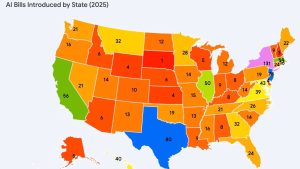
In California, there are more than 66,000 businesses active in the digital economy. They employ more than 1.6 million Californians and account for more than 10% of the state’s GDP. Californians are disproportionately paying the costs of politically motivated legal attacks on America’s leading tech companies.
Successful litigation could cost targeted firms more than 10% of their global revenues annually, according to a recent analysis incorporating public pension data, stock market trends and company disclosures that the Computer & Communications Industry Association (CCIA) conducted from Bureau of Economic Analysis and Census data.
For California’s government employee pension plans, this translates to a minimum loss of $14.7 billion, robbing pension plans by more than $3,800 per plan member. These figures are conservative estimates — they account only for direct holdings within the top 10 investments of pension plans, excluding indirect holdings through index funds. The true financial impact could be far worse.
California has the most to lose financially when U.S. tech companies are targeted by the government. California-based companies such as Google and Apple are typically among the top holdings of pension funds. Now these pension funds and even the S&P 500 stock index are at risk because of countless lawsuits and enforcement actions. Californians not directly working for a tech company likely don’t realize how this anti-tech movement disproportionately harms them.
Read the full article on San José Spotlight



